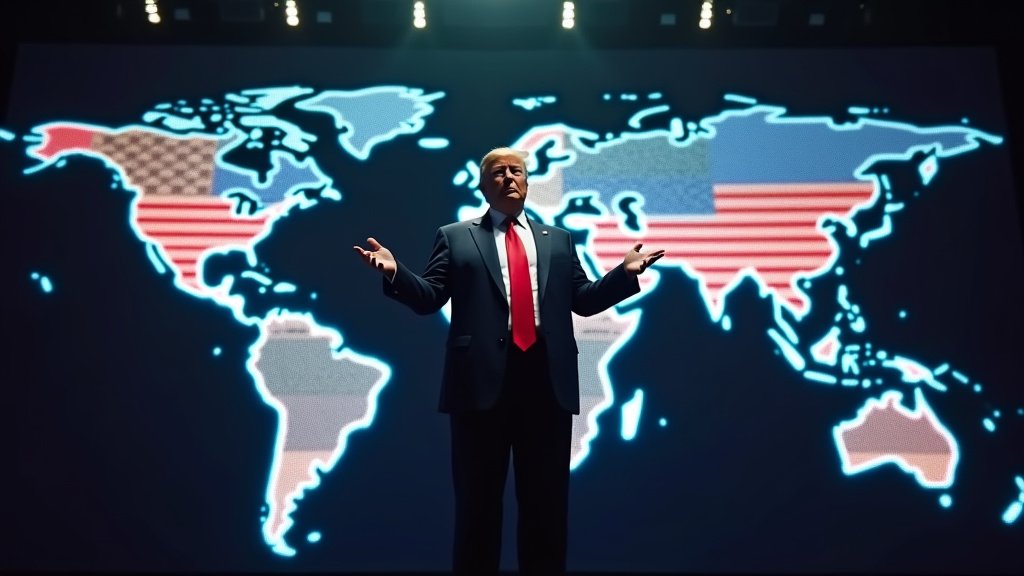A federal court judge issued a significant ruling on April 24, 2025, temporarily blocking a key provision stemming from a presidential executive order concerning voter registration requirements. The decision, made in the case League of Women Voters et. al. v. Trump et. al., specifically targets a mandate that would require individuals utilizing the federal voter registration form to provide documentary proof of citizenship, such as a passport, when submitting their applications.
This temporary injunction prevents the U.S. Election Assistance Commission (EAC) from implementing the controversial requirement while the legal challenge against it proceeds through the judicial system. The lawsuit, brought by a coalition that includes the League of Women Voters and supported by civil liberties groups like the American Civil Liberties Union (ACLU), argues that the executive action overstepped the boundaries of presidential authority.
The Executive Order and the Challenged Provision
The provision at the heart of the dispute originates from a presidential executive order aimed at ensuring election integrity. This specific part of the order sought to impose stricter identity and citizenship verification requirements on individuals registering to vote via the national mail-in voter registration form. This form, standardized for use across states, is designed to simplify voter registration and facilitate compliance with federal election laws.
However, the order’s mandate for documentary proof of citizenship – requiring submission of documents like birth certificates, passports, or naturalization papers alongside the registration form – represents a departure from how many states have historically implemented the requirements for the federal form. While states can require proof of citizenship for voter registration, the method and timing often vary, and many rely on attestation under penalty of perjury or cross-referencing with existing government databases rather than demanding upfront documentary evidence with the federal form.
Legal Challenge Alleges Overreach of Power
The plaintiffs, represented in part by the ACLU, contend that the president’s action constitutes an unlawful overreach of executive power. According to the ACLU, the U.S. Constitution vests the authority to regulate the time, place, and manner of federal elections primarily with the U.S. Congress and the individual states.
The organization argues that by directing the EAC – an independent federal agency tasked with assisting election officials and administering federal election laws – to implement this specific proof-of-citizenship requirement, the president effectively weaponized an independent commission to unilaterally impose a rule that should, if enacted, originate from legislative action by Congress or regulatory processes by states within their constitutional purview.
“The president’s attempt to impose a national documentary proof-of-citizenship requirement through an executive order and via the EAC is a clear violation of the separation of powers,” stated an ACLU representative following the ruling. “The Constitution is explicit: Congress and the states set election rules, not the president attempting to bypass the legislative process.”
Implications of the Temporary Block
The temporary blockage means that, for the time being, individuals using the federal voter registration form are not required to submit documentary proof of citizenship to the EAC as mandated by the executive order’s provision. This maintains the status quo that existed prior to the attempted implementation of the rule.
The ACLU noted that its clients, who are actively using the federal form to register voters, particularly in anticipation of elections scheduled for the summer and fall of 2025, would have been significantly hampered by the blocked requirement. They argue that demanding specific documents like passports or birth certificates upfront creates unnecessary barriers to voter registration, potentially disenfranchising eligible citizens, especially those who may not possess or be able to easily obtain such documents.
What’s Next in the Case?
The ruling on April 24, 2025, is an initial step in what is expected to be a protracted legal battle. The temporary injunction provides immediate relief to those who would be affected by the requirement but does not resolve the underlying legal questions about the validity of the executive order’s provision.
The case, League of Women Voters et. al. v. Trump et. al., will now proceed through the federal court system. The court will consider arguments from both sides regarding the scope of presidential authority in election administration, the role of the EAC, and the constitutional allocation of power over federal elections to Congress and the states.
The ACLU and the other plaintiffs are seeking to have the executive order’s proof-of-citizenship provision ultimately struck down permanently. The temporary block will remain in effect while the court evaluates the merits of the case and determines whether to issue a permanent injunction or allow the requirement to be implemented.
The outcome of this litigation holds significant implications for voter registration processes nationwide, particularly for the use of the federal form, and is being closely watched by election officials, voting rights advocates, and political observers across the United States.










